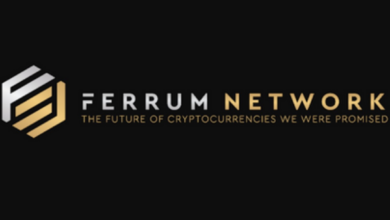
Decentralized finance (DeFi) is an emerging financial technology that uses secure distributed ledgers similar to those used by cryptocurrencies. DeFi is a model for organizing and enabling cryptocurrency-based transactions, exchanges, and financial services.
The core premise of DeFi is that there is no centralized authority to dictate or control operations, which is different from traditional models of finance for fiat currency or centralized finance (CeFi) within the cryptocurrency markets.
DeFi platforms don’t rely on any centralized financial institutions and are not subject to adversity or bankruptcy, which mitigates much of the risk .DeFi relies on the use of a blockchain, which is often based on Ethereum in many DeFi operations.
A blockchain is a form of immutable distributed ledger that cryptographically secures entries, which are used for transactions. DeFi uses cryptocurrencies and smart contracts to provide services that don’t need intermediaries.
Smart contracts are computer code that can be programmed to execute automatically when certain conditions are met. DeFi products and services include payments, lending and borrowing, trading and investments, capital raising (crowdfunding), and insurance.
DeFi is defined as a competitive, contestable, composable, and non-custodial financial ecosystem built on technology that does not require a central organization to operate.
DeFi is being designed to use cryptocurrency in its ecosystem, so Bitcoin isn’t DeFi as much as it is a cryptocurrency. DeFi is an open-source movement, and the protocols and applications are all open for anyone to inspect, fork, and innovate on.
Because of the layered stack, protocols can be mixed and matched to unlock unique combo opportunities.
How is DeFi different from traditional finance
Decentralized finance (DeFi) differs from traditional finance in several ways. Firstly, DeFi operates on a publicly available blockchain, while traditional finance is regulated by a set of laws and licensed financial institutions.
Secondly, DeFi has no boundaries that users need to overcome, while traditional finance has a high barrier to entry.
Thirdly, DeFi platforms don’t rely on any centralized financial institutions and are not subject to adversity or bankruptcy, while traditional finance relies on centralized financial institutions.
Fourthly, DeFi products and services are conducted without a trusted central intermediary such as a bank, while traditional finance requires intermediaries. Finally, DeFi is being designed to use cryptocurrency in its ecosystem, while traditional finance uses fiat currency.
What are the advantages of DeFi over traditional finance
Decentralized finance (DeFi) has several advantages over traditional finance. Firstly, DeFi allows users to preserve the autonomy of their assets and investments, as DeFi governance is autonomous and allows for the disintermediation of finance.
Secondly, DeFi is accessible to anyone with an internet connection and crypto in their digital wallet, while traditional finance has a high barrier to entry.
Thirdly, DeFi eliminates intermediaries, making financial services more affordable since no fees are paid to intermediaries.
Fourthly, DeFi is based on applications that are entirely decentralized, while traditional finance relies on centralized financial institutions. Finally, DeFi is built on a public blockchain that acts as the trust source, governing all operations in the financial sector, while traditional finance is governed by public governance, which entails laws and licensed financial institutions.
How does DeFi ensure security and trust
Decentralized finance (DeFi) ensures security and trust through the use of blockchain technology. All operations in DeFi are conducted on a publicly available blockchain, which acts as the main trust source.
The blockchain is a distributed ledger that records all transactions and is immutable, meaning that once a transaction is recorded, it cannot be altered or deleted.
DeFi also leverages smart contracts to execute agreements once predetermined conditions are met, eliminating the need for intermediaries.
Smart contracts are self-executing contracts with the terms of the agreement between buyer and seller being directly written into lines of code.
This ensures that the terms of the agreement are met before the transaction is executed, providing a high level of security and trust. However, it is important to note that DeFi is still an experimental and risky niche within the wider cryptocurrency space, and there have been instances of DeFi-related scams.




